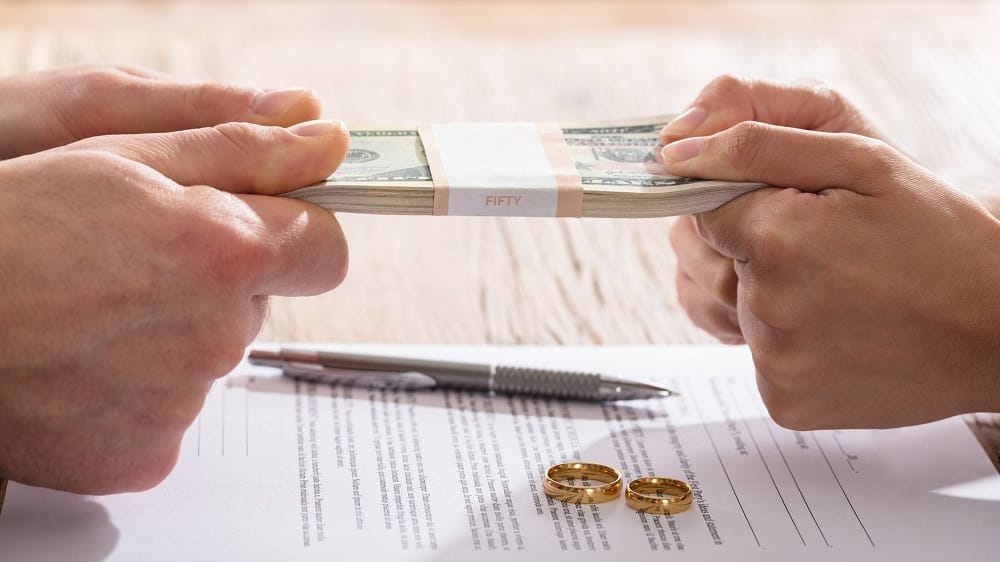
Winning the lottery might feel like a dream come true, until you realize your marriage is on the rocks and divorce is on the table. In that case, the million-dollar question becomes: do I have to share it?
Florida law doesn’t offer a one-size-fits-all answer. Whether lottery winnings are considered marital property depends on several factors, including when the ticket was purchased, how the money was handled, and whether you’ve taken steps to protect it.
How Florida Defines Marital Property
Florida is an equitable distribution state. That means when a couple divorces, the court divides marital assets in a way that’s fair, but not necessarily 50/50. Figuring out what counts as a “marital asset” is step one in figuring out who keeps what.
Generally speaking, any income or asset acquired during the marriage is presumed to be marital property. That includes things like salaries, retirement contributions, real estate, and yes, lottery winnings. Even if the winning ticket was purchased by just one spouse, the fact that it was bought during the marriage puts it squarely in the marital category unless there’s a strong reason to classify it otherwise.
On the flip side, assets acquired before the marriage or after the divorce is finalized are typically considered non-marital. But like most things in family law, there are exceptions, and timing alone doesn’t tell the whole story.
When Are Lottery Winnings Considered Marital Property?
If you bought a winning ticket while married, there’s a very strong chance those winnings will be treated as marital property in Florida. The courts tend to look at the timing of the purchase first. If the ticket was bought during the marriage, it’s presumed to be a shared asset, regardless of whose name is on it or who physically bought it.
But timing isn’t everything. Let’s say you bought a ticket with money from an inheritance you received before marriage and kept in a separate account. Even if you won during the marriage, you might have an argument that it’s not marital property if you never mixed the money with shared accounts or used the winnings for joint expenses. This is called commingling, and once that happens, even separate property can become fair game in divorce.
On the flip side, lottery winnings from before the marriage usually stay non-marital, unless they’ve been used for marital purposes, like paying off a shared mortgage or buying a family car. Once that line gets blurred, it can be difficult to draw it back in court.
What if the Prize is Paid in Installments?
Some lottery winners take a lump sum. Others choose a long-term annuity paid out over 20 or 30 years. In divorce, that distinction matters.
If you won during the marriage and chose annuity payments, those future payments are likely to be considered part of the marital estate, even if the divorce is finalized before all the checks come in. Courts may divide the future payments, assign a present value to them, or treat them as future income depending on how the divorce settlement is structured.
Taxes can also play a role. Florida courts typically look at the net value of assets, so income tax obligations might be considered when dividing winnings. Bottom line: the structure of your payout affects how it gets split, and both timing and tax need to be factored in early.
Can You Protect Winnings with an Agreement?
Yes, lottery winnings can be protected with a prenuptial or postnuptial agreement as long as it’s done correctly. These agreements can spell out that any windfalls, including gambling or lottery prizes, belong solely to one spouse. Florida courts generally uphold these agreements if they were entered into voluntarily, with full financial disclosure, and aren’t grossly unfair.
If you’re already married and suddenly come into a large sum, a postnup might still offer protection moving forward. Just know that timing and transparency matter. If one spouse pressures the other into signing after the fact or hides the winnings during the drafting process, the agreement might not hold up.

Hidden Winnings, Big Consequences
Trying to hide lottery winnings during a divorce can backfire in a big way. Florida law requires both spouses to fully disclose their finances during divorce proceedings, and that includes unexpected income like lottery prizes. If a court finds out one spouse deliberately concealed winnings, it has the power to award the entire amount to the other spouse.
Courts in Florida have done exactly that in past cases, especially when the concealment was blatant or prolonged. Honesty during disclosure isn’t just the right thing to do, it’s a legal obligation. Hiding assets can turn what might have been a fair settlement into a complete loss.
Legal Rules vs. Emotional Arguments
It’s common for people to argue that they shouldn’t have to share lottery winnings because they bought the ticket with their own money or had a feeling it was their lucky day. But in Florida, those emotional arguments rarely hold weight in court. The law focuses on how and when the asset was acquired, not who made the purchase or they “felt” that day.
Even if one spouse had no idea a ticket was purchased, if it was bought during the marriage and with marital funds, it’s likely a shared asset. Courts don’t weigh effort or intuition, they follow the law. That can be a hard pill to swallow, but it’s important to separate fairness from feelings when assets of this size are on the table.
Don’t Gamble on Guesswork, Get Legal Advice
Lottery winnings are one of the most high-stakes assets a couple can deal with during divorce, and Florida law doesn’t leave much room for assumptions. Timing, commingling, payout structure, and honesty all play a role in how winnings are divided.
A family law attorney can walk you through the facts of your situation and help protect what’s legally yours. At In Law We Trust, we know how high the stakes can be, and we’re here to make sure your rights stay intact.










